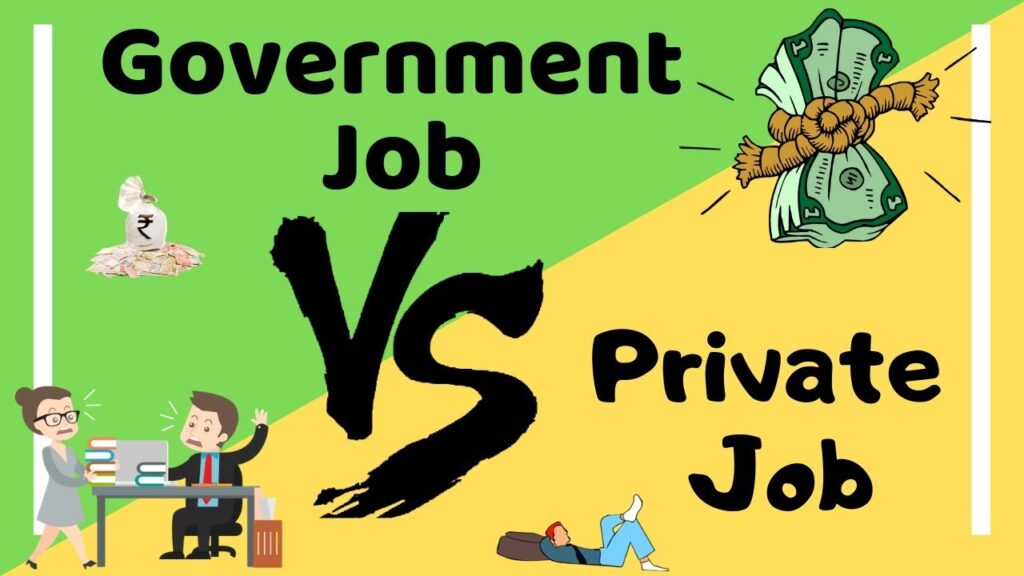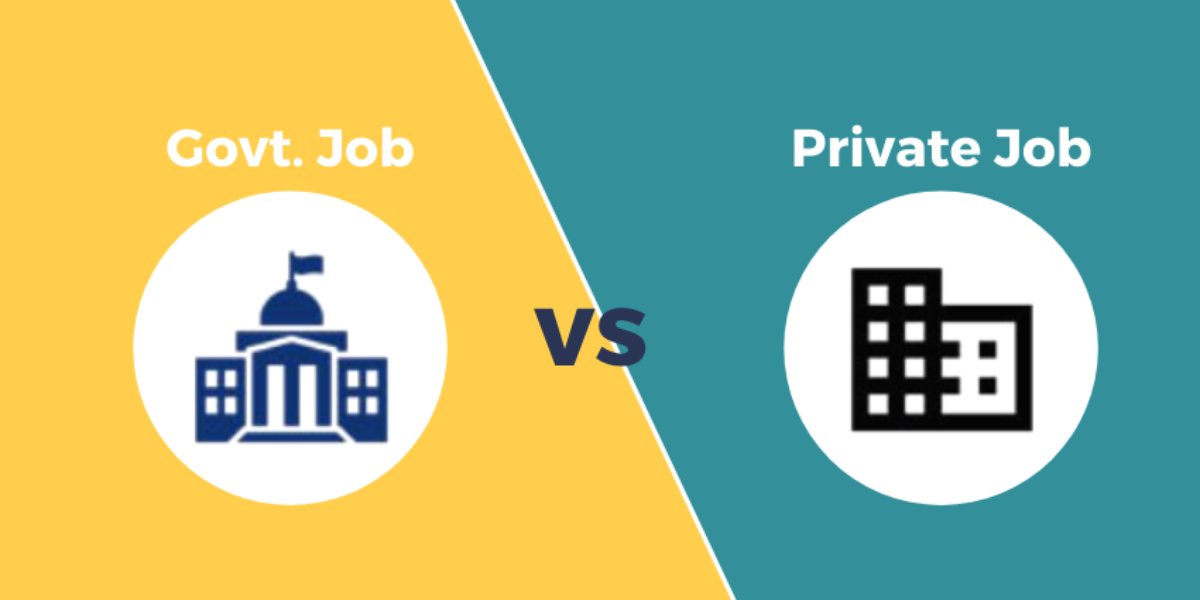
In the era of an ever-changing job market, the discussion between choosing a govt job or a private job always spits down to one crucial factor: security. Both sectors offer unique advantages; the rising question is which one could provide more stability and peace of mind.
As job seekers weigh their options, it is essential to consider the distinctive attributes of both sectors to make an informed decision.
In this insightful discussion, we’ll explore the complexities of job security in government and private jobs, offering a comprehensive analysis to guide your career choice.
Government Jobs often are perceived as the ideal idols of job security. The public sector, funded by taxpayers and managed by elected officials, intends to offer more stable employment than private jobs. Government positions are less likely to be affected by market fluctuations, economic downturns, or changes in consumer behavior.
Job Security: Public Jobs vs Government Jobs
On the other hand, private jobs are more susceptible to market forces. Companies in the private sector must adapt quickly to changing economic conditions, technological advancements, and consumer preferences. This can sometimes lead to restructuring, downsizing, or even closure of businesses, potentially putting employees at risk of job loss.
However, it’s important to note that government jobs are not entirely immune to cuts. Budget constraints, policy changes, or shifts in political leadership can sometimes lead to reductions in the public workforce. Nevertheless, these occurrences are generally less frequent and affect a smaller percentage of employees compared to the private sector.
Benefits and Compensation—Private & Government Jobs
Government Jobs typically offer a comprehensive benefits package that includes health insurance, retirement plans, and paid time off. These benefits are often more generous and stable compared to those in private jobs. Public sector employees may also enjoy better work-life balance, with regular working hours and more predictable schedules.
Private jobs, while sometimes offering competitive salaries, may provide less comprehensive or less stable benefits packages. However, high-performing private sector employees often have the potential to earn significantly higher salaries and bonuses compared to their public sector counterparts, especially in senior positions.
It’s worth noting that while government jobs may offer more secure benefits, private jobs can sometimes provide more innovative perks such as stock options, flexible work arrangements, or cutting-edge health and wellness programs.
Career Growth and Advancement
Career advancement in government jobs often follows a structured path based on seniority and experience. This can provide a clear roadmap for career progression but may also limit opportunities for rapid advancement. The public sector typically values stability and experience, which can be advantageous for long-term employees. Private jobs, in contrast, often offer more dynamic career growth opportunities. High-performing individuals may find faster paths to promotion and can potentially switch between companies to accelerate their career trajectory. The private sector tends to reward innovation, productivity, and results, which can lead to quicker advancement for standout employees.
However, this faster pace in private jobs can also mean more pressure and competition. Job security in the private sector often depends on continual performance and adaptability, which can be stressful for some individuals.
Adaptability to Economical Environment Switching
Government Jobs tend to be more resilient during economic downturns. During recessions, the public sector often maintains or even increases its workforce to implement economic stimulus measures or provide essential services. This stability can be particularly valuable during uncertain economic times.
Private jobs, while more vulnerable to economic fluctuations, also offer opportunities for growth and innovation during economic upswings. Companies that successfully navigate challenging times may emerge stronger, potentially offering enhanced job security and growth prospects for their employees.
It’s important to consider that the adaptability required in private jobs can be a double-edged sword. While it may lead to less immediate job security, it can also foster skills that make employees more marketable and resilient in the long run.
Technological Impact
The impact of technology on job security differs between the government and private sectors. Government Jobs are often slower to adopt new technologies, which can provide a buffer against rapid technological displacement. However, this slower pace of change may also leave public sector employees less prepared for future technological shifts.
Private jobs, particularly in technology-driven industries, are at the forefront of innovation. While this can lead to job displacement in some areas, it also creates new opportunities in emerging fields. Employees in private jobs may find themselves better positioned to adapt to technological changes, potentially enhancing their long-term job security.
Job Satisfaction and Personal Growth
Job security isn’t solely about maintaining employment; it also involves job satisfaction and personal growth. Government Jobs often provide opportunities to serve the public and contribute to society, which can be deeply fulfilling for many individuals. The stability of public sector work can also allow employees to focus on long-term projects and initiatives.
Private jobs, while potentially less secure, often offer more diverse experiences and challenges. The dynamic nature of the private sector can provide opportunities for continuous online learning and skill development, which can contribute to overall career security even if individual jobs may be less stable.
In the debate between government jobs and private jobs, there is no clear-cut winner when it comes to job security. Both sectors offer distinct advantages and face unique challenges. Government Jobs generally provide more immediate job stability and comprehensive benefits, making them an attractive option for those prioritizing long-term security and work-life balance.
Private jobs, while potentially less secure in the short term, offer opportunities for rapid career growth, higher earning potential, and the development of adaptable skills that can enhance long-term career prospects. Ultimately, the choice between government and private sector employment depends on individual priorities, career goals, and risk tolerance. Some may find security in the stability of government work, while others may see security in the adaptability and growth potential of private sector roles. In today’s evolving job market, true job security often lies in continuous skill development, adaptability, and the ability to provide value in any work environment.
Whether choosing government jobs or private jobs, professionals should focus on building a diverse skill set, staying informed about industry trends, and maintaining a network that spans both the public and private sectors. By doing so, individuals can create a sense of job security that transcends the traditional boundaries between government and private employment.


